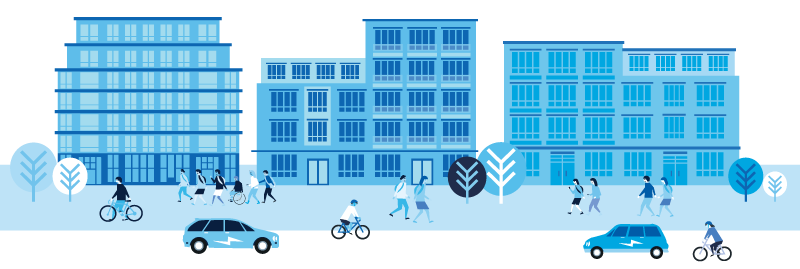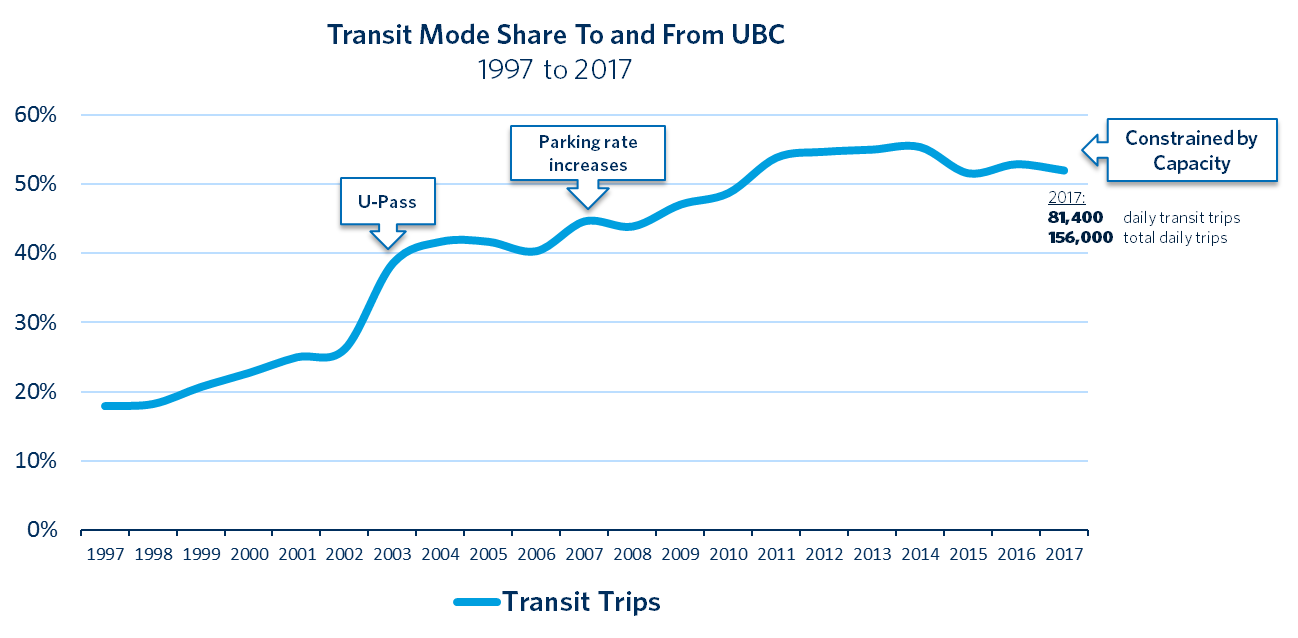Creating a Sustainable Future

With SkyTrain to UBC, Connectivity Will be More Sustainable
SkyTrain to UBC will increase sustainable transit usage along the entire length of the Broadway corridor, reducing congestion, GHG emissions and air contaminants while improving personal health and wellbeing.
Rapid transit is a key ingredient for UBC to achieve its target of having at least two thirds of trips to and from campus be made by walking, cycling or transit by 2040. It is estimated that the Broadway Subway extension to Arbutus and the further extension to UBC combined will:
- boost regional transit ridership by more than 54,000 new transit trips/day;*
- remove 2,000 peak hour auto trips from the road network;*
- reduce greenhouse gas emissions and air contaminants;*
- contribute to a > 2.3 billion reduction in auto Vehicles Kilometers Travelled over a 30-year lifecycle;*
- reduce lifecycle GHG emissions by 335 kilotonnes; and help achieve local, provincial and federal climate change targets.*
*UBC Line Rapid Transit Study: Phase 3 Evaluation Report, August 2012
SkyTrain is a Critical Component of a Larger Strategy
UBC has implemented policies and programs on campus aimed at reducing the number of cars on the road:
- The university has established an aggressive sustainable mode share target of 66.6% by 2040.
- By 2030, achieve a 45% reduction in commuting emissions from 2010 levels.
- Participation in the successful U-Pass program has resulted in 52% of trips to/from campus by transit.
- UBC is constraining parking supply and leveraging new technology to make the most of the spaces that exist.
- The university is investing in cycling infrastructure and partnering with carshare providers to increase transportation options.
- UBC is piloting an on-campus bike share program to make it easier for people to get around campus and access existing transit services.
- The university is supporting decarbonization through increased EV charging infrastructure.
But this is not enough. Transit is over capacity, and people are getting passed up every day. Without a reliable, fast, and comfortable transit option, people are returning to their cars.
